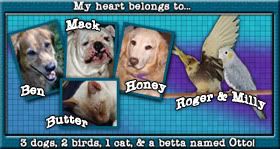Clone your cat for $68,000
March 29, 2004
US pet owners are being offered a second lease on life for their dying cats by a firm that is offering to clone the animals for about $US50,000 ($67,824) per "copy cat".
Genetic Savings and Clone, based near San Francisco, claims to be the leading US pet cloner and has launched a commercial, albeit expensive, cloning operation.
This year, the California company that announced the world's first cat clone in February 2002, plans to clone nine felines, six of which will be sold to the public, with three to be kept to show off at cat shows.
The firm has already received four firm orders for the copy cats and is also working hard to duplicate the genetic make-up of dogs.
It says it has received massive public interest about its unusual service, with some of the requests proving touching and others a little bizarre.
"We've had people say they have a ball that their dog used to play with and it's covered with saliva and can we clone from that," said Ben Carlson, the company's vice president of communications.
"We get a lot of poignant requests like that. Or they have a bit of fur or maybe a tooth or they buried their pet a couple of months ago and just heard about us. But we have to tell them unfortunately, it's too late."
To create a clone, the company takes a swab sample the size of a small coin from the mouth and from the stomach of the pet.
Dead animals can be cloned, but only during a short time after death.
The company was formed in 2000 when founder John Sperling, inspired by the successful 1996 birth of Dolly - the British sheep who became the first cloned animal - began trying to clone his beloved dog, Missy.
After eventually settling on the simpler area of feline cloning, CC - short for copy cat - was born at Texas A and M university.
When pet owners heard of the success, they began calling him asking if they could have their dogs and cats cloned as well. Genetic Savings and Clone was born.
The company now boasts a few hundred clients who are banking their pets' genes in the hope of reviving their beloved furry companions' genes at a later date.
The Courier-Mail
SEE ARTICLE HERE






 Reply With Quote
Reply With Quote









Bookmarks